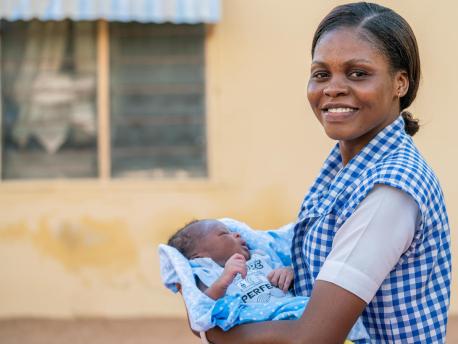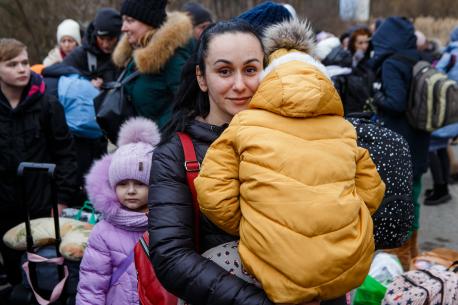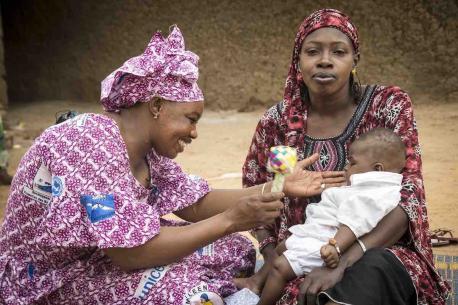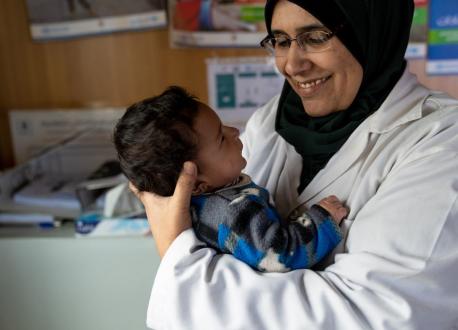
Amilia Escaped a Deadly Militia Attack — and Became a UNICEF Midwife
In 2014, armed groups invaded Amilia Mathew's hometown of Michika, Nigeria, brutally killing hundreds of civilians. Mathew fled 145 miles away to Yola, the capital of Adamawa state. There, with help from UNICEF, she became a community health worker and rebuilt a fulfilling life for herself, protecting the lives of mothers and babies.

With UNICEF training, Mathew learned how to take care of pregnant women and newborns and how to deliver babies in challenging situations. In the past two years, she has safely delivered more than 1,500 babies and supported thousands of pregnant women and mothers.

For around US $2,000, the 28-year-old completed courses in Integrated Management of Childhood Illnesses (IMCI), Resuscitation of Newborns and Community-Based Newborn Care, among other subjects. Above, she holds a newborn baby, just hours old, who she delivered at Nana As'mau clinic in Yola.

Nana As'mau clinic receives vital supplies from UNICEF, such as midwifery kits, a labor bed and other equipment, and basic drugs, critical for saving the lives of newborns. She visits new mothers at home, including this mom, who recently delivered twins at the clinic.

Mathew (center) shares information on prenatal care and women's health issues during community outreach activities.
In Nigeria, where more than 600 newborn babies die every day due to lack of access to quality medical care, simple, practical measures — such as clean, safe water in health clinics, sterilizers and midwifery equipment — have helped reduce the newborn mortality rate across Adamawa state.

Top photo: ICommunity health worker Amilia Mathew, 28, holds newborn Sulaiman, just hours after she delivered him in the UNICEF-supported Nana As'mau clinic in Yola, Nigeria in 2018. All photos © Reinier van Oorsouw for UNICEF
HOW TO HELP
There are many ways to make a difference
War, famine, poverty, natural disasters — threats to the world's children keep coming. But UNICEF won't stop working to keep children healthy and safe.
UNICEF works in over 190 countries and territories — more places than any other children's organization. UNICEF has the world's largest humanitarian warehouse and, when disaster strikes, can get supplies almost anywhere within 72 hours. Constantly innovating, always advocating for a better world for children, UNICEF works to ensure that every child can grow up healthy, educated, protected and respected.
Would you like to help give all children the opportunity to reach their full potential? There are many ways to get involved.





